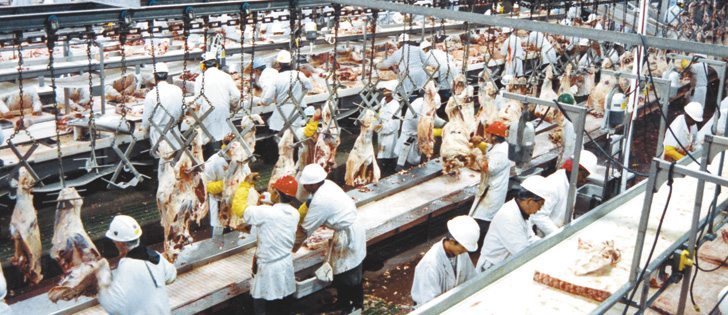Canada could lose its fourth largest market for pork exports if it does not quickly negotiate a trade deal with South Korea, a senior pork export official says.
Pork sales to South Korea will exceed $130 million this year, Canada Pork International executive director Jacques Pomerleau told MPs on the House of Commons international trade committee Nov. 17.
However, the European Union and the United States have already reached free trade agreements with South Korea while Canada continues to negotiate.
Canada could be shut out if those two trade giants approve and implement their already negotiated deals first, Pomerleau warned.
Read Also

Stacking Canada up on gene editing livestock
Canada may want to gauge how Argentina and other countries have approached gene editing in livestock and what that has meant for local innovation.
“Our South Korean contacts made it very clear that without an agreement with South Korea, the Canadian pork industry would be almost out of that market within two years,” he said.
He urged the trade committee to pressure the government to concentrate on concluding a deal with Korea.
While the Conservative government offers an image of the world opening up to Canadian exports through free trade agreements, Pomerleau offered another view of a world filled with trade restrictions that are limiting market access for an industry that exported $2.7 billion worth of product last year.
Canada has been the world’s third largest pork exporter.
However, he said political promises to promote exports abroad are irrelevant without deals that guarantee market access.
“A case in point is China right now where we’ve been actively shut out because of H1N1,” Pomerleau said.
“We also have Russia, which is a major market, where they are now using what I would call nonscientifically based standards to block our exports to the point that most of our plants, especially those in Quebec, are completely shut out of Russia.”
India continues to refuse to negotiate a veterinary agreement that would allow pork imports.
“We now have rumours from South Africa that they could use a technical barrier to block out exports,” he said.
“It goes on and on.”
Pomerleau was responding to an argument from New Democrat MP Peter Julian that rather than free trade deals, the Canadian government should be spending money on meat product market promotion.
“If we wanted to give a real boost now, short term, it would be to do a lot of work on market access and really go around the world and talk to our trade partners to resolve all the outstanding market access issues,” he said.
Pressed to respond to NDP opposition to free trade agreements, the CPI executive said: “Market access is our priority and will remain our top priority because without access you cannot do promotion or anything else.”
Agricultural exporters have been making the same arguments about Parliament’s inability to approve legislation to implement a Canada-Colombia free trade deal.
NDP and Bloc Québécois MPs have refused to allow the bill to come to a second reading vote-in-principle, arguing Canada should not be striking deals with Colombia because of that country’s human rights abuses.
Pomerleau said that because the United States negotiated a better deal with Colombia that is now before Congress, the Canadian industry will benefit only if the Canadian deal takes effect first.
“From contacts our industry has with U.S. industry officials and policy makers, it seems that the U.S.-Colombia agreement will be passed and put into effect by the current Congress by 2012,” he said.
“It is therefore our hope that Canada will pass into law its own trade liberalization agreement with Colombia as soon as possible so that we can get a head start on reducing Colombian import charges on Canadian pork.”














